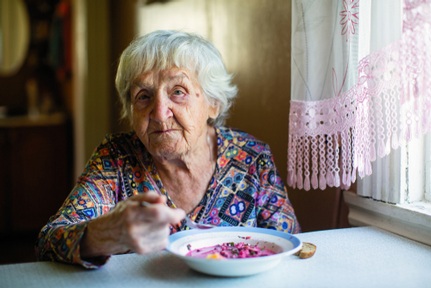Elderly at risk of muscle loss urged to keep step count up this winter
Cold weather may encourage some people to stay indoors more but just two weeks of reduced physical activity causes older people to lose significant amounts of muscle, prompting academics to urge them to keep up their step count throughout the winter.

As the temperature drops during winter months, new research by the University of Liverpool has revealed that two weeks of reduced physical activity causes people to gain fat within the muscle tissue which results in a major loss in muscle strength.
The study, presented at The Physiological Society’s Future Physiology 2019 conference, also revealed a decline in bone mineral density. These changes can result in a reduced ability to perform daily activities and can lead to chronic health conditions.
Juliette Norman, one of the authors of the research said:"If the gym is hard to get to, people should be encouraged to just meet 10,000 steps as even this can guard against reductions in muscle and bone health, as well as maintaining healthy levels of body fat.”
The study, funded by the Centre of Integrated Research into Musculoskeletal Ageing (CIMA), involved (26 young adults and 21 older people). They were asked to do the same amount of physical activity over a four-day period with each participant doing over 10,000 steps per day. This was then followed by a two-week period of inactivity involving all participants completing only 1,500 steps per day.
The study looked at whether the health of older adults was more affected by the period of inactivity, in light of the fact that everyone loses muscle mass, strength and bone during ageing.
The findings showed that muscle size, muscle strength and bone mass was equally reduced in the young and old groups after two weeks and both groups gained similar amounts of fat in their muscles and around their waist, however the older adults had less muscle and more fat to start with.
Two critical physiological measures that substantially declined in the older group but not the young, was their cardiorespiratory fitness (CRF) and mitochondrial function.
CRF refers to the efficiency with which oxygen is supplied to muscles during sustained physical activity, and it is influenced by cardiovascular and respiratory health. Low CRF is usually found in those with poor physical health, with these individuals being more likely to develop diseases at a younger age.
Mitochondrial function, the energy production of our cells, is important for muscle and metabolic health.
Juliette Norman added: “The severe impact of short-term inactivity on our health is hugely important to communicate to people."
Latest News
 29-Jul-24
Dementia Bus gives carehome.co.uk staff insight into life with dementia
29-Jul-24
Dementia Bus gives carehome.co.uk staff insight into life with dementia
 27-Jul-23
UK's top home care agencies in 2023 revealed
27-Jul-23
UK's top home care agencies in 2023 revealed
 30-Nov-22
A quarter of older people keep their falls secret from family
30-Nov-22
A quarter of older people keep their falls secret from family
 29-Nov-22
'Covid-19 has not gone away' say terminally ill
29-Nov-22
'Covid-19 has not gone away' say terminally ill
 28-Nov-22
IT consultant who received poor care opens 'compassionate' home care business
28-Nov-22
IT consultant who received poor care opens 'compassionate' home care business